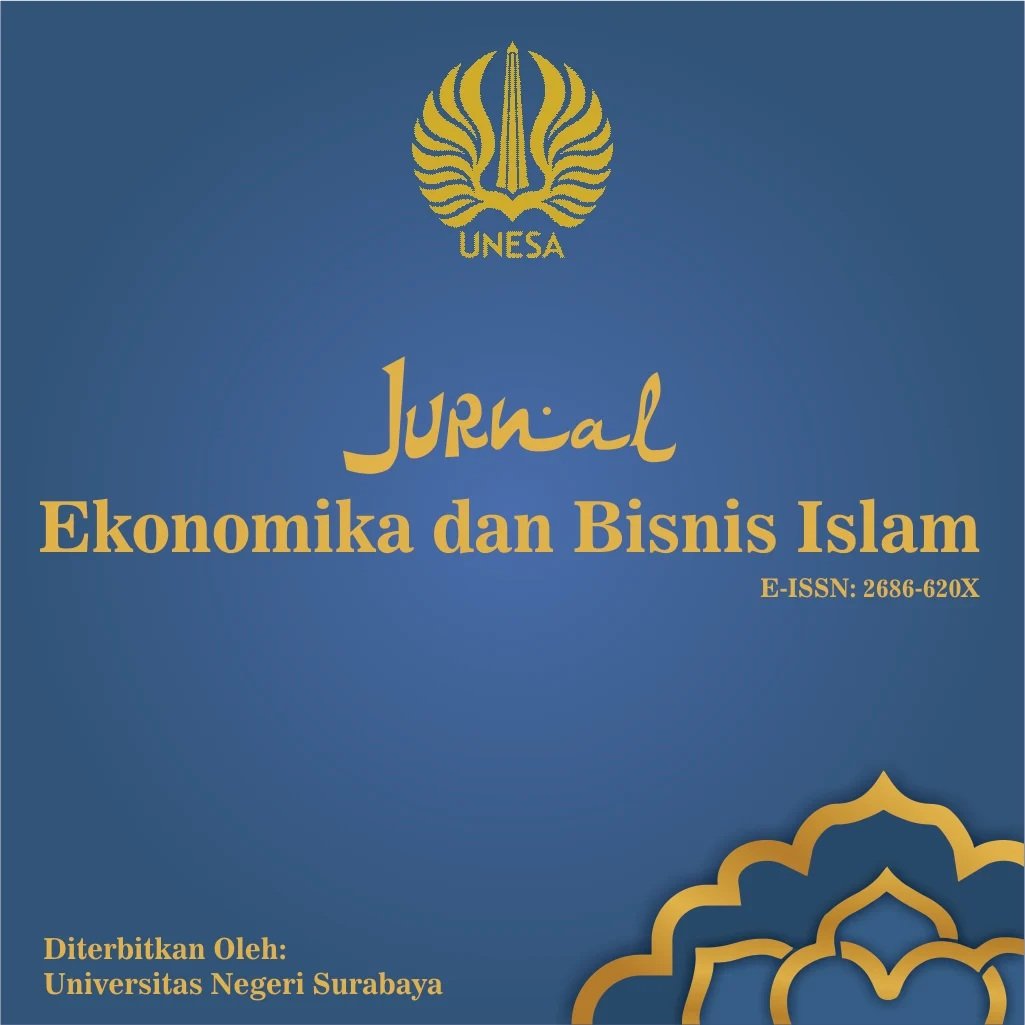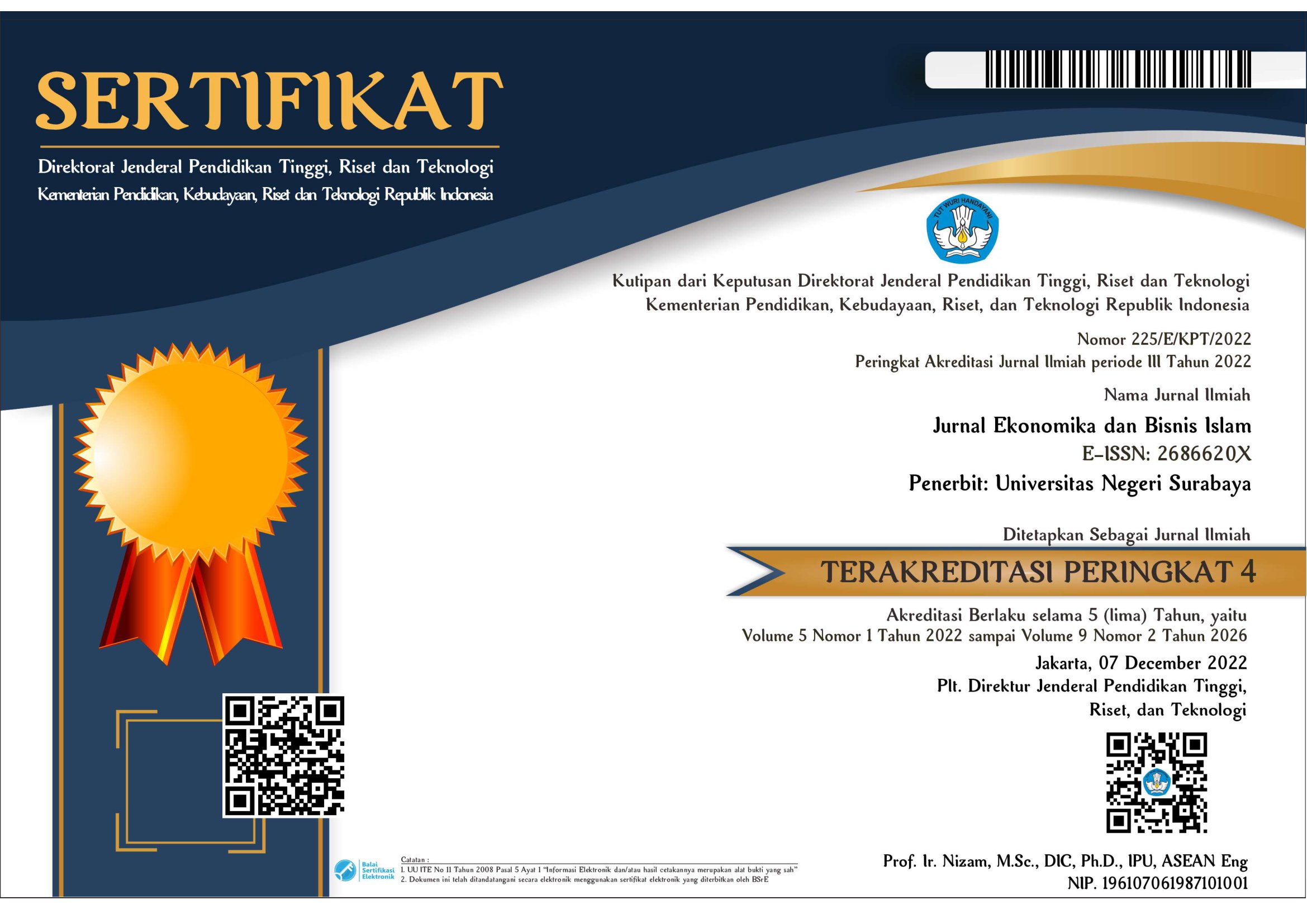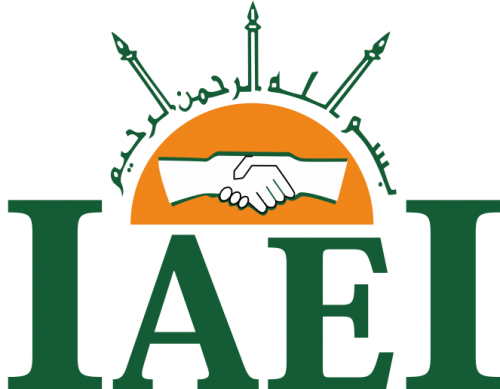E-Commerce Market Saturation in Indonesia: The Dynamics of Price Competition from Islamic Economic Perspective.
DOI:
https://doi.org/10.26740/jekobi.v8n1.p1-19Keywords:
E-commerce Market Saturation, Dynamic Price Competition, Consumer Price Sensitivity, Islamic Economics Principles, Sustainable Business PracticesAbstract
The rapid growth of Indonesia's e-commerce sector has triggered market saturation, driven by increasing sellers, technological advancements, and consumer price sensitivity. This study aims to analyze the dynamics of market saturation and price competition, focusing on their implications for sellers and consumers. Employing a qualitative approach, the research integrates thematic analysis and causal-loop diagrams to uncover the relationships between market forces and their effects. Findings reveal that low entry barriers and high price transparency intensify price competition, reducing profitability and driving unsustainable practices. Consumers, increasingly price-sensitive, prioritize affordability over quality, creating a negative feedback loop that exacerbates saturation. From an Islamic economic perspective, these dynamics violate the principles of justice (al-adl) and balance (al-mizan), emphasizing the need for ethical business practices and equitable competition. This research underscores the importance of innovative strategies and policy interventions to create a fairer and more sustainable e-commerce ecosystem aligned with Islamic principles.
References
Al-Daghistani, S. (2022). Beyond Maṣlaḥah: Adab and Islamic Economic Thought. American Journal of Islam and Society, 39(3–4), 57–86. https://doi.org/10.35632/ajis.v39i3-4.2988
Ali Mohamed, A. A., & Baig, F. B. S. (2012). Treatment of migrant workers: The Islamic perspective. Australian Journal of Basic and Applied Sciences, 6(11), 97–105. https://www.scopus.com/inward/record.uri?eid=2-s2.0-84871760181&partnerID=40&md5=75aabc2a3e9b70cd4e4ea5601d2cc48a
Ali, S. A. M., Hassan, R., & Othman, A. A. (2024). Al-Musharakah-Led Islamic Sustainable Finance. In Islamic Finance and Sustainable Development: A Global Framework for Achieving Sustainable Impact Finance (pp. 148–161). https://doi.org/10.4324/9781003468653-17
Alizadeh Emamzadeh, M. R. (2020). Analysis of economic convergence of Islamic justice in selected Islamic countries. Journal of Economic Structures, 9(1). https://doi.org/10.1186/s40008-020-00191-8
Badan Pusat Statistik. (2023). Statistik E-Commerce 2022/2023. Badan Pusat Statistik, 27. https://www.bps.go.id/
Bakharev, V., Karmanova, A., Nikiforova, Z., Pokrovskaya, L., & Shevchuk, E. (2023). Last Mile Delivery Transformation as a Method to Improve Customer Experience in Post-COVID-19 Russia and the World. Lecture Notes in Networks and Systems, 574 LNNS, 2005–2015. https://doi.org/10.1007/978-3-031-21432-5_219
Cattelan, V. (2017). L’economia islamica: Alternativa apparente o reale? Oriente Moderno, 97(2), 270–290. https://doi.org/10.1163/22138617-12340155
Chen, S., Liu, W., Song, H., & Zhang, Q. (2024). Government-led e-commerce expansion project and rural household income: Evidence and mechanisms. Economic Inquiry, 62(1), 150–174. https://doi.org/10.1111/ecin.13167
Chen, Z., & Zhao, B. (2014). Unemployment and product market competition in a Cournot model with efficiency wages. Canadian Journal of Economics, 47(2), 555–579. https://doi.org/10.1111/caje.12081
Chiou, L., Kafali, E. N., & Rysman, M. (2020). Internet use, competition, and geographical rescoping in Yellow Pages advertising. Information Economics and Policy, 52. https://doi.org/10.1016/j.infoecopol.2020.100867
Choudhury, M. A., Pratiwi, A., Hossain, M. S., & Adenan, F. (2020). A Relational Well-Being (Maslaha) Index of Gender Development in Socio-Economic Development Sustainability. In Economic Empowerment of Women in the Islamic World: Theory and Practice (pp. 167–190). https://doi.org/10.1142/9789811212154_0009
Cihan, C., Krisztina, P., & Akos, V. (2017). Try not to be late! - The importance of delivery service in online shopping. Organizations and Markets in Emerging Economies, 8(2), 177–192. https://doi.org/10.15388/omee.2017.8.2.14186
Datta, J., & Bose, S. (2024). A Study on the Growth Prospects of Q Commerce and Its Role Play in eCommerce Business in Present-Day India. In Sustainability in Marketing Practice: Strategies for Industry 4.0 (pp. 155–168). https://doi.org/10.1201/9781032668123-13
Dias, E. G., de Oliveira, L. K., & Isler, C. A. (2022). Assessing the effects of delivery attributes on e-shopping consumer behaviour. Sustainability (Switzerland), 14(1). https://doi.org/10.3390/su14010013
El-Essa, M., Weshah, S., & Nofal, M. (2024). Understanding the Practices and Challenges of Sustainability Reporting in Islamic Banking. In Contributions to Management Science: Vol. Part F2529 (pp. 75–85). https://doi.org/10.1007/978-3-031-48770-5_8
Firdaus, A. (2021). Determination of organisational essential needs as the basis for developing a maṣlaḥah-based performance measurement. ISRA International Journal of Islamic Finance, 13(2), 229–250. https://doi.org/10.1108/IJIF-11-2017-0041
Fransiscus, R. (2022). E-commerce is Paralyzing Distribution Contracts in Indonesia. Global Legal Review, 2(2), 91. https://doi.org/10.19166/glr.v2i2.5222
Girdzijauskas, S., Mialik, A., Jociute, E., & Zujyte, N. (2011). Modeling the economic saturation. Lecture Notes in Business Information Processing, 97 LNBIP, 178–183. https://doi.org/10.1007/978-3-642-25370-6_18
Griffith, R., Harrison, R., & Macartney, G. (2007). Product market reforms, labour market institutions and unemployment. Economic Journal, 117(519), C142–C166. https://doi.org/10.1111/j.1468-0297.2007.02039.x
Güney, N. (2024). Maqāsid al-Sharī‘a in Islamic Finance: A Critical Analysis of Modern Discourses. Religions, 15(1). https://doi.org/10.3390/rel15010114
Hanif, M. (2019). Islamic mortgages: principles and practice. International Journal of Emerging Markets, 14(5), 967–987. https://doi.org/10.1108/IJOEM-02-2018-0088
Hassan, R. (2024). Islamic Sustainable Finance Paradigm. In Islamic Sustainable Finance: Policy, Risk and Regulation (pp. 5–14). https://doi.org/10.4324/9781003395447-3
Huang, Y., Liu, J., Zhu, R., Jiang, L., & Song, L. (2015). The research of e-commerce enterprises’ price game: Empirical studies in China. Advances in Intelligent Systems and Computing, 362, 511–520. https://doi.org/10.1007/978-3-662-47241-5_43
Hufnagel, G., Schwaiger, M., & Weritz, L. (2022). Seeking the perfect price: Consumer responses to personalized price discrimination in e-commerce. Journal of Business Research, 143, 346–365. https://doi.org/10.1016/j.jbusres.2021.10.002
Julian, A., Maheswar, C., Ramyadevi, R., Murali Dhar, M. S., & Selvi, S. (2024). Analysis and Estimation of Discounts on Product Prices in E-Commerce Sites. Proceedings - International Conference on Computing, Power, and Communication Technologies, IC2PCT 2024, 759–762. https://doi.org/10.1109/IC2PCT60090.2024.10486475
Kahf, M. (2019). Islamic economics’ methodology and Fiqh. In Methodology of Islamic Economics: Problems and Solutions (pp. 161–180). https://doi.org/10.4324/9780429320804-7
Kayadibi, S. (2019). The State as an Essential Value Ḍarūriyyāt of The Maqāṣid al-Sharī‘ah. Ahkam: Jurnal Ilmu Syariah, 19(1), 1–18. https://doi.org/10.15408/ajis.v19i1.6256
Krämer, A., & Kalka, R. (2016). How digital disruption changes pricing strategies and price models. In Phantom Ex Machina: Digital Disruption’s Role in Business Model Transformation (pp. 87–103). https://doi.org/10.1007/978-3-319-44468-0_6
Kristanto, F. H., Wimanda Rahma, H., & Nahrowi, M. (2022). Factors Affecting E-Commerce Customer Loyalty In Indonesia. Jurnal Syntax Transformation, 3(09), 1150–1164. https://doi.org/10.46799/jst.v3i09.613
Kumar, V., & Ayodeji, O. G. (2021). Determinants of the success of online retail in India. International Journal of Business Information Systems, 37(2), 246–262. https://doi.org/10.1504/IJBIS.2021.115373
Lakhal, S. Y., & H’Mida, S. (2005). A pricing model for a new product sold over the internet. International Journal of Internet Marketing and Advertising, 2(1–2), 56–77. https://doi.org/10.1504/ijima.2005.007504
Lee, E., & Lee, B. (2013). Changing price elasticity of digital goods: Empirical study from the e-book industry. International Conference on Information Systems (ICIS 2013): Reshaping Society Through Information Systems Design, 1, 721–736. https://www.scopus.com/inward/record.uri?eid=2-s2.0-84897727558&partnerID=40&md5=e7e48980f9f397c63cccd61bc0d5aa29
Li, W., & He, W. (2024). Revenue-increasing effect of rural e-commerce: A perspective of farmers’ market integration and employment growth. Economic Analysis and Policy, 81, 482–493. https://doi.org/10.1016/j.eap.2023.12.015
Li, W. Y., Choi, T. M., & Chow, P. S. (2016). Fast fashion retail operations services: An empirical study from consumer perspectives. In Service Supply Chain Systems: A Systems Engineering Approach (pp. 139–151). https://doi.org/10.1201/b20894-17
Lin, W. B., & Ku, T. Y. (2015). The influences of service quality of online order and electronic word of mouth on price sensitivity using loyalty as a mediating variable. International Journal of Electronic Business, 12(3), 215–241. https://doi.org/10.1504/IJEB.2015.071391
Lindgren, C., Li, Y., & Rudholm, N. (2024). Why do firms compete on price comparison websites? The impact on productivity, profits, and wages. International Review of Retail, Distribution and Consumer Research, 34(1), 1–13. https://doi.org/10.1080/09593969.2022.2070773
Liu, M., Min, S., Ma, W., & Liu, T. (2021). The adoption and impact of E-commerce in rural China: Application of an endogenous switching regression model. Journal of Rural Studies, 83, 106–116. https://doi.org/10.1016/j.jrurstud.2021.02.021
Lobah, J. (2016). The Islamic Principle of Maslaha as Practical Wisdom for Human Development. In CSR, Sustainability, Ethics and Governance (pp. 145–151). https://doi.org/10.1007/978-3-319-28287-9_11
Muslimin, J. M., & Etika, N. (2020). Wages in the Theoretical Perspectives and Islam. Al-’Adalah, 17(2), 335–358. https://doi.org/10.24042/adalah.v17i2.6577
Oprescu, G., & Eleodor, D. (2014). The impact of the digital economy’s development on competition. Quality - Access to Success, 15, 9–20. https://www.scopus.com/inward/record.uri?eid=2-s2.0-84907256925&partnerID=40&md5=90fb0cff89df337b959f45fe4523db36
Peinkofer, S. T., Esper, T. L., Smith, R. J., & Williams, B. D. (2015). Assessing the Impact of Price Promotions on Consumer Response to Online Stockouts. Journal of Business Logistics, 36(3), 260–272. https://doi.org/10.1111/jbl.12095
Pérez-Trujillo, M., Torrejón, C. A., & Calderón, M. L. (2024). Is E-commerce an opportunity for boosting employment in developing countries? a study for the Chilean case. Asia-Pacific Journal of Regional Science, 8(4), 1077–1110. https://doi.org/10.1007/s41685-024-00356-4
Raimi, L., Abdur-Rauf, I. A., & Olaide Raimi, B. (2024). Interdependence of halal entrepreneurship and Islamic finance for creating a strong halal ecosystem. Journal of Islamic Marketing. https://doi.org/10.1108/JIMA-05-2023-0162
Rakhmanov, A., Thommandru, A., & Tillaboev, S. (2024). Historical Trajectories and Modern Dynamics of Islamic Financial Law in Central Asia. International Journal of Legal Information. https://doi.org/10.1017/jli.2024.15
Ramirez, E., & Goldsmith, R. (2009). Some antecedents of price sensitivity. Journal of Marketing Theory and Practice, 17(3), 199–214. https://doi.org/10.2753/MTP1069-6679170301
Rethel, L. (2011). Whose legitimacy? Islamic finance and the global financial order. Review of International Political Economy, 18(1), 75–98. https://doi.org/10.1080/09692290902983999
Ridhwan, M. M., Suryahadi, A., Rezki, J. F., & Andariesta, D. T. (2023). The impact of COVID-19 on the labour market and the role of E-commerce development in developing countries: Evidence from Indonesia. Journal of the Asia Pacific Economy. https://doi.org/10.1080/13547860.2023.2195710
Riwanto, A., & Suryaningsih, S. (2022). Realizing Welfare State and Social Justice: A Perspective on Islamic Law. Volksgeist: Jurnal Ilmu Hukum Dan Konstitusi, 5(1), 41–51. https://doi.org/10.24090/volksgeist.v5i1.6430
Saini, J. S., & Kumar, N. (2020). Issues pertaining to growth of digital economy: An arduous challenge before CCI. Journal of Public Affairs, 20(4). https://doi.org/10.1002/pa.2301
Salma Sairally, B. (2013). Evaluating the corporate social performance of Islamic financial institutions: an empirical study. International Journal of Islamic and Middle Eastern Finance and Management, 6(3), 238–260. https://doi.org/10.1108/IMEFM-02-2013-0026
Shabbir, M. S., Ghazi, M. S., & Akhtar, T. (2016). The relationship between traditional as well as modern modes of financial instruments for international market through Islamic finance. Journal of Internet Banking and Commerce, 21(1). https://api.elsevier.com/content/abstract/scopus_id/84963783813
Shah, H. A. R., Hasan, B. M. M., Ahmad, H. M., & Ali, N. M. (2021). Modern Slavery and Forced Labour: An Overview of International Law, the Malaysian Law and Islamic Law Perspectives. Ahkam: Jurnal Ilmu Syariah, 21(2), 239–256. https://doi.org/10.15408/ajis.v21i2.22543
Shaukat, M., Shafique, B., & Madbouly, A. (2024). Islamic Framework for Behavioral and Socio-Economic Justice. In Islamic Finance in the Modern Era: Digitalization, FinTech and Social Finance (pp. 52–78). https://doi.org/10.4324/9781003366751-5
Simchi-Levi, D., & Wu, M. X. (2018). Powering retailers’ digitization through analytics and automation. International Journal of Production Research, 56(1–2), 809–816. https://doi.org/10.1080/00207543.2017.1404161
Smolo, E. (2024). Islam and free trade: The contributions of muslim scholars to modern economic theories. In The Future of Islamic Finance: From Shari’ah Law to Fintech (pp. 49–64). https://doi.org/10.1108/978-1-83549-906-120241004
Srinivasan, R., Prasad, V. A., & Shrisha, S. (2013). The impact of technology on the buying behaviour in an online retail environment in India. 2013 Proceedings of PICMET 2013: Technology Management in the IT-Driven Services, 569–575. https://www.scopus.com/inward/record.uri?eid=2-s2.0-84890826946&partnerID=40&md5=bf13410a3e7e1c350df4606201b7ba5d
Suartini, & Syafrizal. (2021). AL-GHAZĀLĪ ON SOCIAL WELFARE: In Search of its Relevance in the Context of Village Owned Enterprise. Al-Risalah: Forum Kajian Hukum Dan Sosial Kemasyarakatan, 21(1), 83–95. https://doi.org/10.30631/alrisalah.v21i1.647
Thalib, P., Sabrie, H. Y., & Kurniawan, F. (2020). Islamic law principles in islamic business activity. International Journal of Innovation, Creativity and Change, 13(5), 378–387. https://api.elsevier.com/content/abstract/scopus_id/85086848848
Tjiptodjojo, K. I., & Setyawan, S. (2015). Price Sensitivity: Consumer Behavior and Decision Making Process. The 4th IBSM 2015 International Conference on Business, Management and Accounting, 153–161.
Tong, T., Xu, X., Yan, N., & Xu, J. (2022). Impact of different platform promotions on online sales and conversion rate: The role of business model and product line length. Decision Support Systems, 156. https://doi.org/10.1016/j.dss.2022.113746
Trujillo, M. P., & Aleán–Romero, A. (2024). The impact of ICT and e-commerce on employment in Colombia. Electronic Commerce Research and Applications, 65. https://doi.org/10.1016/j.elerap.2024.101378
Umashankar, N., Bhagwat, Y., & Kumar, V. (2017). Do loyal customers really pay more for services? Journal of the Academy of Marketing Science, 45(6), 807–826. https://doi.org/10.1007/s11747-016-0491-8
Victor, V., Nathan, R. J., & Fekete-Farkas, M. (2021). Consumer response towards personalised pricing strategies in online marketing. International Journal of Technology Marketing, 15(2–3), 223–265. https://doi.org/10.1504/IJTMKT.2021.118215
Wang, J., & Hu, W. (2023). Study on Dynamic Pricing of Perishable Goods Based on Consumer Strategic Behavior in Two Purchasing Environments. Smart Innovation, Systems and Technologies, 358, 279–292. https://doi.org/10.1007/978-981-99-3416-4_23
Wazin, & Suryanto, T. (2023). Constructing Islamic Law and Islamic Business Ethics for a Sustainable Halal Industry Economy. Manchester Journal of Transnational Islamic Law and Practice, 19(3), 212–223. https://www.scopus.com/inward/record.uri?eid=2-s2.0-85197481623&partnerID=40&md5=3d051aba31679395a62b53d6bb5d53d0
Xing-hong, Q., Qiang, S., & Zhi-sheng, H. (2019). Competitive and cooperative strategies for online shopping logistics service supply chain considering customer expectations and quality cost. Journal of Industrial Engineering and Engineering Management, 33(3), 136–146. https://doi.org/10.13587/j.cnki.jieem.2019.03.016
Yoon, K., & Tran, T. V. (2011). Revisiting the relationship between consumer loyalty and price sensitivity: The moderating role of deal-proneness. Journal of Marketing Theory and Practice, 19(3), 293–306. https://doi.org/10.2753/MTP1069-6679190303
Zatonatska, T., & Fedirko, O. (2019). Modeling of the E-Commerce Impact on the Employment in EU. 2019 IEEE International Conference on Advanced Trends in Information Theory, ATIT 2019 - Proceedings, 304–308. https://doi.org/10.1109/ATIT49449.2019.9030427
Zhang, D. J., Dai, H., Dong, L., Qi, F., Zhang, N., Liu, X., Liu, Z., & Yang, J. (2020). The long-term and spillover effects of price promotions on retailing platforms: Evidence from a large randomized experiment on alibaba. Management Science, 66(6), 2589–2609. https://doi.org/10.1287/mnsc.2019.3316
Zhang, X. L., & Demirkan, H. (2021). Between online and offline markets: A structural estimation of consumer demand. Information and Management, 58(4). https://doi.org/10.1016/j.im.2021.103467
Downloads
Published
How to Cite
Issue
Section
License
Copyright (c) 2025 Rianto Anugerah Wicaksono

This work is licensed under a Creative Commons Attribution 4.0 International License.
This work is licensed under a Creative Commons Attribution 4.0 International License.
 Abstract views: 1288
,
Abstract views: 1288
, PDF Downloads: 717
PDF Downloads: 717














